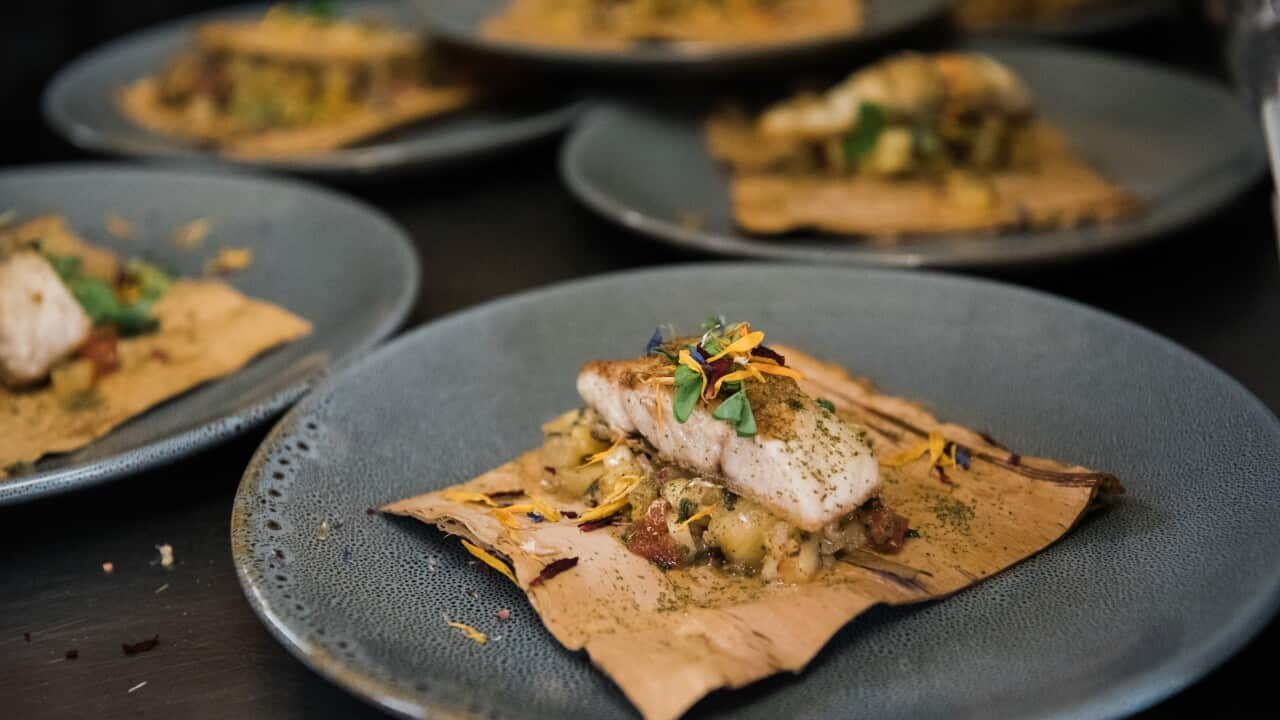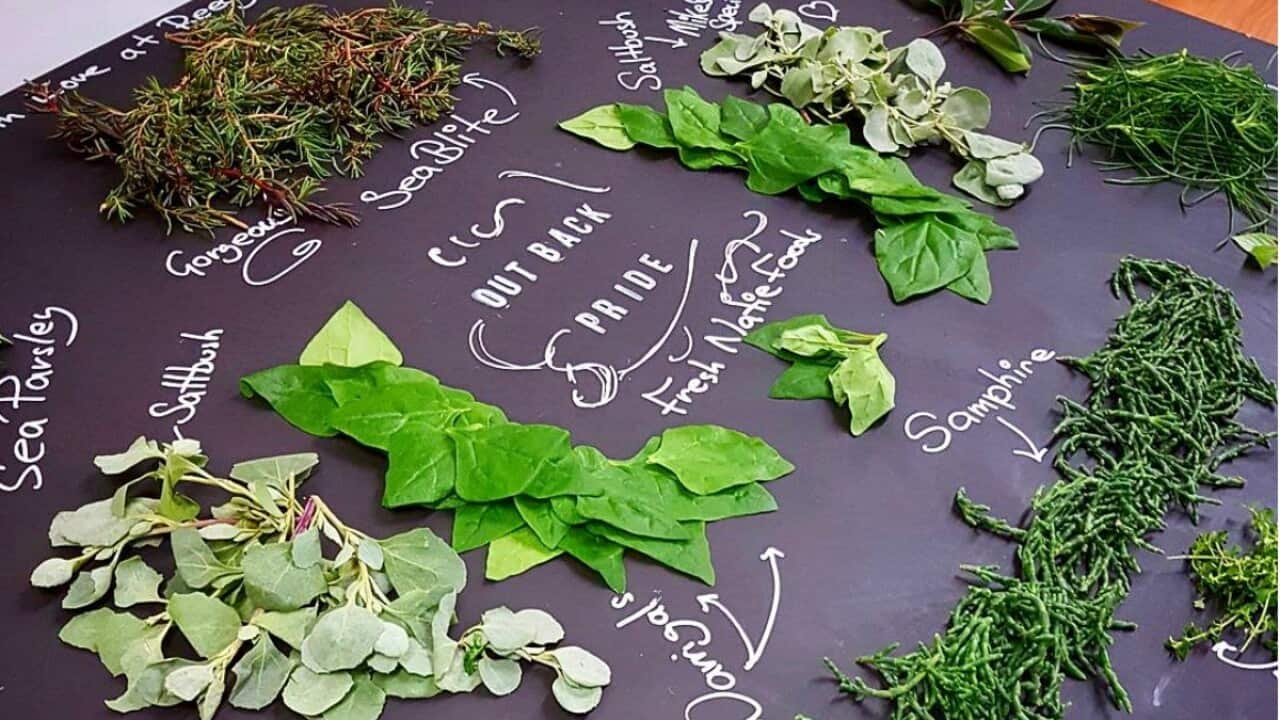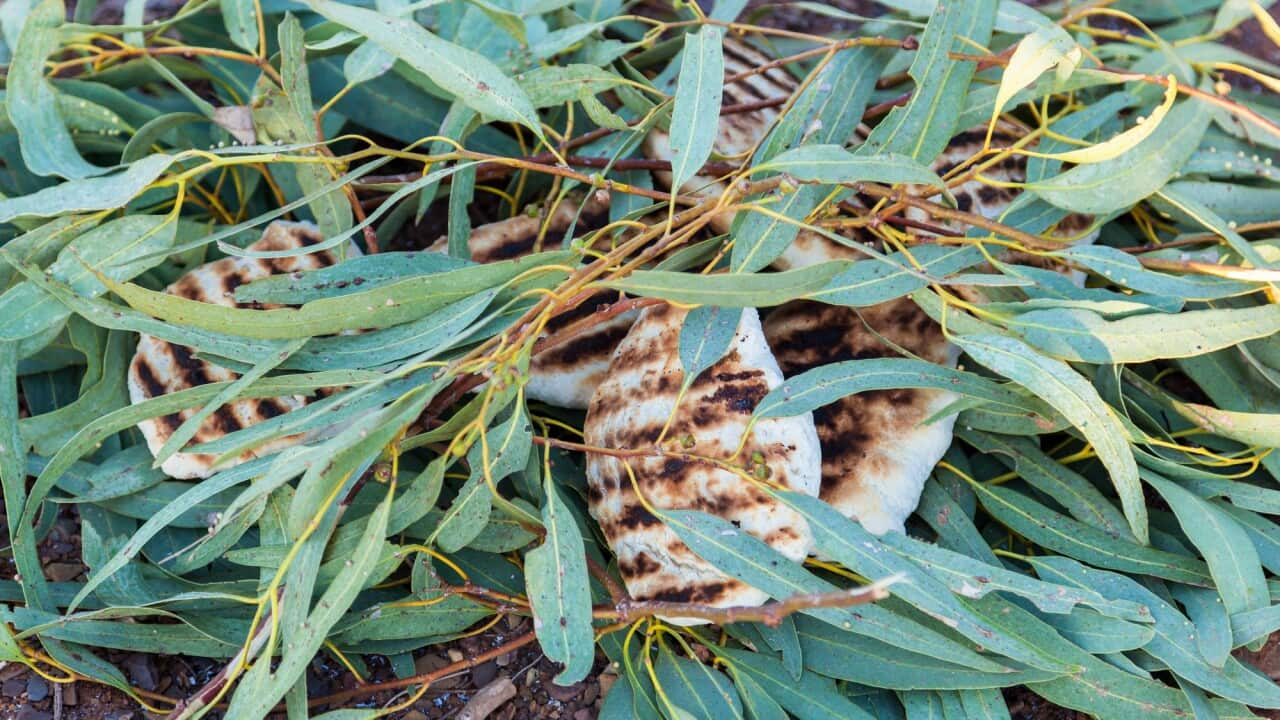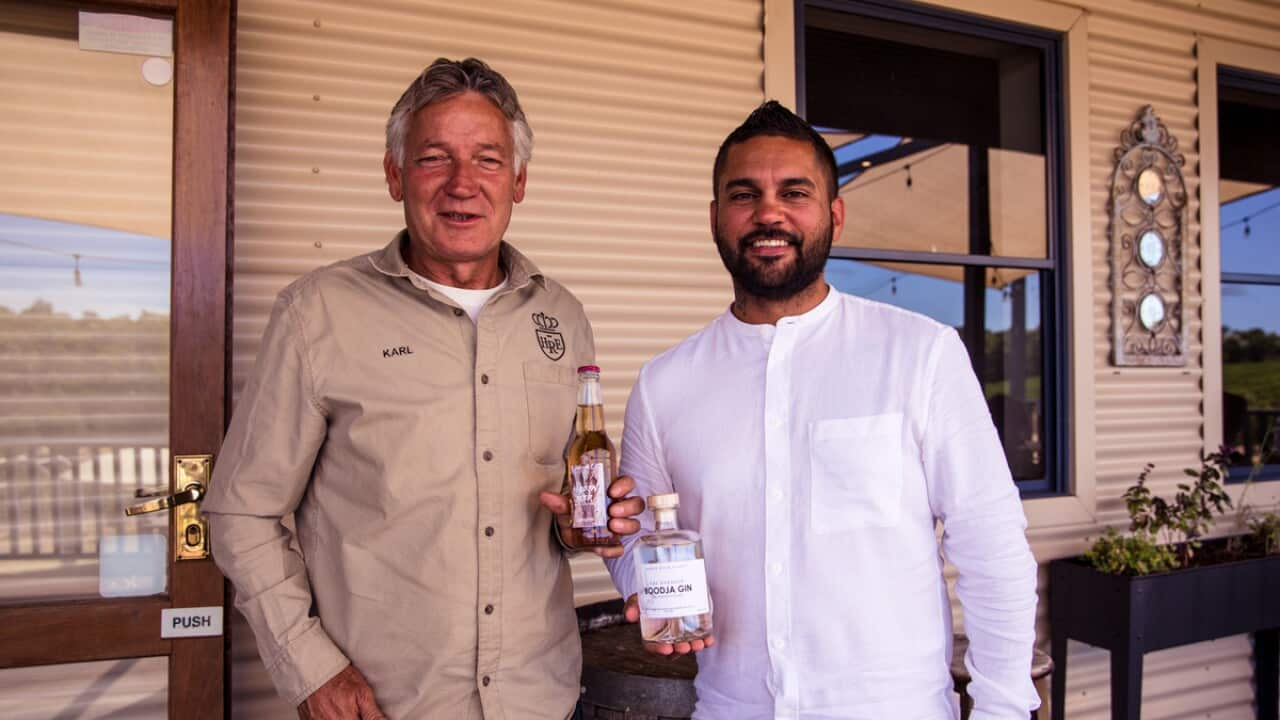in Mudgee isn't just about bush food. The cafe, located in the Central West of New South Wales, also celebrates Indigenous knowledge, customs and communities.
"We use our traditional language to greet people, so they're embracing culture from the start," says owner , who is a proud Ngemba Weilwan woman. "We're showcasing ingredients from one end of the country to the other, so showcasing ingredients that would only grow in the Kimberley to the rainforest to the desert," she says.
Drop by and the menu might feature bush tomato quiches, lilly pilly cheesecakes, kangaroo burgers, Kakadu plum smoothies or lemon myrtle barramundi with chips.
"It's a twist on what people would normally eat if they go to a cafe," Winsor says. "If they're getting a salad, they're getting a crocodile salad with a lemon-myrtle balsamic dressing."
Winsor likes to regularly change the menu, so guests can try something different every time they visit. One constant, though, is Warakirri's mission of highlighting bush foods and Indigenous culture.
If they're getting a salad, they're getting a crocodile salad with a lemon-myrtle balsamic dressing.
"It opens up people's minds to ask questions and then they ask, 'where does lemon myrtle come from and what is that?'" Winsor says. It gives her a platform to educate people about how Indigenous ingredients are used and remind them that Australia's First Nations people have existed for – they're the oldest continuous living culture in the world. "People become really fascinated by that knowledge [about bush foods] – that it exists today. It's not something that was there thousands of years ago, it's still there now. It's still in our backyard."
Winsor notices that people are fascinated by emu and crocodile meat, or that they're unaware that green ants are edible and can be used for a citrus-like hit in a squid dish or cheesecake. She likes to tell people that kangaroo, because it's so lean, is a sustainable and handy protein worth adding to our diets.
The Warakirri owner goes beyond just talking about ingredients, though. To deal with the shortage of native thyme and river mint right now, she collaborated with another business to tackle the problem. "We've just planted 200 native thyme and river mint plants [for the cafe and to share with people]."
While filming an upcoming with cookbook author recently, she took him to the plot where they're growing the Indigenous herbs. "He wasn't even aware that native thyme existed," she says. "It doesn't matter what kind of level you are at with food, there's a lot for people to learn and embrace."
Warakirri opened last September, but Winsor has been educating people about bush foods for a long time. She's been running , her award-winning native foods business, since 2012, and there's an Indigiearth shopfront attached to the cafe, so people can take home lemon myrtle (her bestselling ingredient) or bush tomatoes from central Australia.
"We have a smoking ceremony on arrival for a cleanse. My son plays the didgeridoo," she says. People are handed sparkling wine with native fruit to start with. As the dinner progresses, she talks about the Indigenous ingredients that headline each dish – "the medicinal uses, where it comes from, how it's used today, the community I source them from" – as cocktails flavoured with bush foods are served throughout the night.
So guests might hear about ' Aunty Pat and her community — they're the people in the area who source Kakadu plum for Winsor. "The Kakadu plum has the of vitamin C of any fruit in the world," the Warakirri owner points out.
"Traditionally, bush tucker is women's business, so communities like Aunty Pat's — and also in Central Australia, where bush tomatoes come from – it's the women and the young girls who are out collecting bush fruit and things are still done in a traditional manner," she says.
Winsor notes that native ingredients aren't just about imparting flavour to a dish. Their significance goes beyond that.
"It's my connection to my culture, it's my connection to my spirituality, to language and, more importantly, to mother earth,” she says. "It connects us right through our culture and spirituality."
It's also why the dinners don’t finish with a simple clearing of the tables.
"Everyone is welcome into the dreaming area, where we serve our dreaming tea. We do a night of stories in the stars and then we – myself and my two children – get painted." They perform a few traditional dances – including a farewell dance – before guests leave with a gift.
Winsor's also held a corroboree under the stars at Warakirri. "We had the oldest living Wiradjuri elder, who is 92, come along, to do a welcome to country." There are plans for another corroboree around Easter, as well as an upcoming dinner and event with Dark Emu author .
"I don't think the café would have worked five years ago in Mudgee. The awareness now is so much greater [around native ingredients and Indigenous knowledge]. People are a lot more open," she says. There are vineyards in Mudgee taking inspiration from how her ancestors treated the land, to make their grape-growing more sustainable. The pandemic and the Black Lives Matter movement has galvanised interest in local ingredients and celebrating Indigenous businesses and customs.
"I think it's amazing," she says. The surging interest in native foods is what compelled her to open Warakirri. "People are more aware of where their products are coming from, where their ingredients are coming from, supporting Australian business. They're asking the right questions."
INDIGENOUS AUSTRALIAN CUISINE
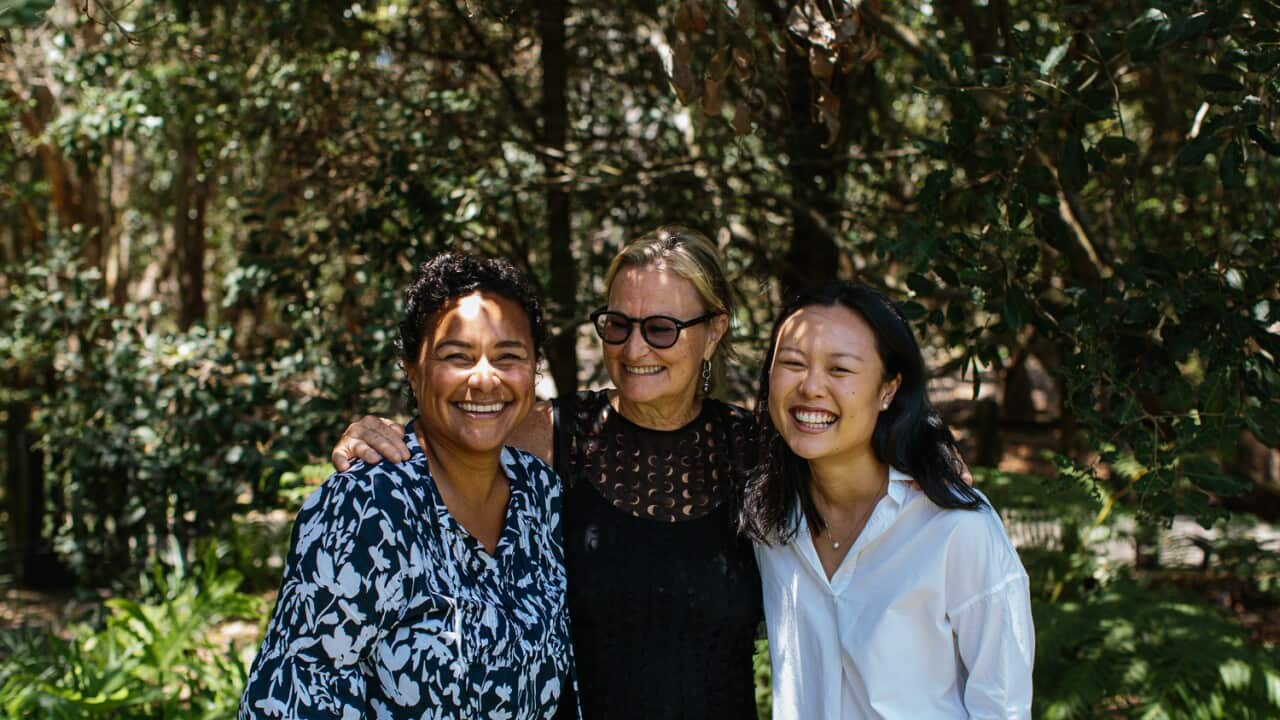
This Chinese restaurant will tell our Indigenous and Asian history through food

